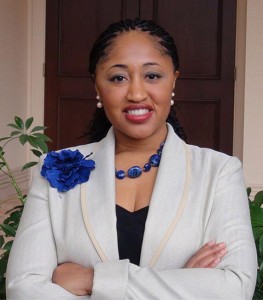 Community Matters is a biweekly opinion column. The views expressed are solely the author’s.
Community Matters is a biweekly opinion column. The views expressed are solely the author’s.
In the last several years there has been more conversation around historical symbols and their meaning. How should we address monuments, streets, fight songs and buildings if they cause pain to some people but are a source of pride, tradition and patriotism for others? Until our most recent period of national racial discourse, there was a debate.
In the last several weeks, monuments have been taken down and drenched in paint. Governments have moved quickly to vote on name changes. Sports teams which had previously resisted mascot name changes are suddenly reconsidering past decisions under the weight of corporate pressure. Now that more people are recognizing the pain of systemic racism today, the voices and feelings of the oppressed are being heard loud and clear.
Research suggests that some symbols may cause psychological harm. On July 6, 2020, the New York Times Idea of the Day: Racist Mascot Psychology noted, “that a team of leading psychologists once conducted an experiment to see how popular images of Native Americans affected Native American high school and college students. The students mostly used positive words…but when the researchers then asked a series of follow-up questions… students who had seen the images reported lower self-esteem and more negative views of their community compared with a control group of similar students who had not seen the images.” The mascots “function as inordinately powerful communicators, to natives and non-natives alike, of how American Indians should look and behave.”
Around 2009 I was at a Black friend’s house and I asked her young son what was special about Barack Obama’s presidency. My friend interrupted me and said, “I don’t want him to think anything is ‘special’ about Obama being the first Black president, I want him to believe (at least for now) that it is normal to see a Black man as president.”
That comment stuck with me because I realized that while his election was an accomplishment for a country that has struggled with racial inequality, we should learn how to master the delicate balance of celebrating successes while normalizing them, especially for children. There is a positive psychological impact of living in a world where we are not an “other”, where people that look like us are part of the conversation and leading.
Examining street names or even the name “Arlington” to determine whether they should be changed is only one step. We have to plan for how we will teach an inclusive history to all residents, not just students, how we will normalize the inclusion of underrepresented groups in our current community, and how we will work to create symbols and positive representation which will benefit us all and not cause harm.
Arlington Magazine’s handling of the recent Extraordinary Teen nominations is a model for all of us. Whytni Kernodle with the Black Parents of Arlington and others noted that the annual recognition did not include students of color this year. On July 2 Arlington Magazine announced on its Facebook page that they would be changing the selection process to include a diverse and inclusive five-person panel, would add a question about race so the panel could ensure the teens that are chosen represent the entire community, and would be proactive about reaching out to a broader network for nominations.
I believe that many of our current Arlington institutions could learn from the changes that Arlington Magazine is making. While they may seem small to an organization or body, collectively, they will prove to represent Arlington well as we evolve to be a more inclusive community.
Krysta Jones has lived in Arlington since 2004 and is active in local politics and civic life. This column is in no way associated with or represents any person, government, organization or body — except Krysta herself.

